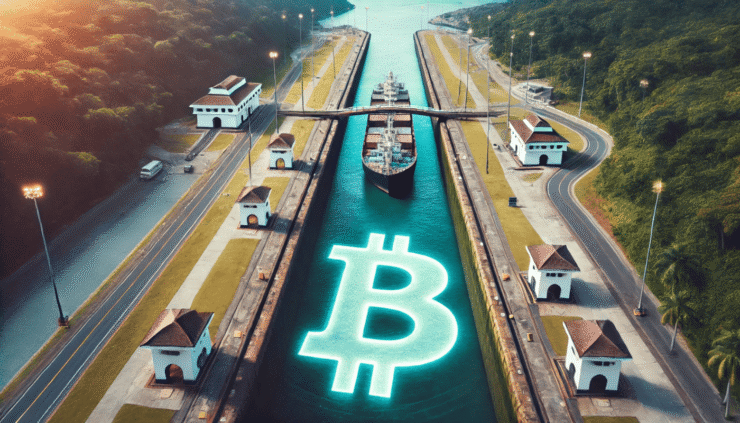At the Bitcoin 2025 conference in Las Vegas, Panama City Mayor Mayer Mizrachi proposed a radical new idea: allowing ships to skip the queue at the Panama Canal if they pay in Bitcoin.
Speaking alongside El Salvador’s Bitcoin advocates Max Keiser and Stacy Herbert, Mizrachi positioned the proposal as part of a wider effort to embed crypto into Panama’s economy. The panel, moderated by Bitcoin Beach director Mike Peterson, spotlighted regional innovation in digital assets and financial infrastructure.
“We have a canal — what if Bitcoin payments gave you priority access?” Mizrachi asked.
Though hypothetical for now, the idea signals a shift from Bitcoin as a passive store of value to an active tool for trade logistics, especially in an era of increased geopolitical competition over global shipping lanes.
Panama Eyes Bitcoin for Trade Optimization
The Panama Canal, which connects the Atlantic and Pacific Oceans, is one of the most important trade routes in the world—handling around 5% of global maritime commerce. In the last fiscal year, it processed nearly 10,000 ships carrying 423 million tons of goods, generating approximately $5 billion in national revenue.
As global powers jostle for influence—most notably with former U.S. President Donald Trump controversially calling for U.S. control of the canal due to rising Chinese influence—Panama’s capital is exploring independent, crypto-powered strategies.
Mayor Mizrachi has already made moves to embed Bitcoin into local governance. Panama City now allows residents to pay taxes, fines, and public service fees in crypto. His latest proposal goes further: offering priority canal passage to Bitcoin-paying vessels and creating a city-level Bitcoin reserve that can be managed without national interference.
The initiatives mirror El Salvador’s model, positioning Panama City as a bold experimenter in crypto-led economic modernization.
Mayor Warns Against Premature Crypto Regulation
Mayor Mizrachi is also calling on national lawmakers to hold off on regulating crypto, warning that premature oversight could hinder innovation and push legitimate use cases into the shadows.
“Don’t touch it, don’t look at it—just let it operate,” he advised.
Mizrachi estimates that Bitcoin-related transactions in Panama exceed $5 billion annually, most of it taking place informally due to legal ambiguity. This shadow market, he says, is driven by fear and lack of clarity—issues that could be resolved through gradual, observational governance rather than sweeping legislative action.
His comments come amid domestic unrest: Panama recently declared a state of emergency in Bocas del Toro, where 5,000 workers from Chiquita Brands were laid off during protests over social protections. Mizrachi pointed to this as a wake-up call for economic reform and financial inclusion—possibly led by crypto tools.
Quick Facts
- Panama City Mayor proposed Bitcoin-based priority passage at the Canal
- Canal processes 5% of global trade and earned $5B last year
- City already accepts crypto for taxes, fines, and services
- Mizrachi seeks to establish a municipal Bitcoin reserve
- Mayor warns lawmakers against overregulating the crypto sector
- Panama’s informal crypto economy is estimated at $5 billion annually





